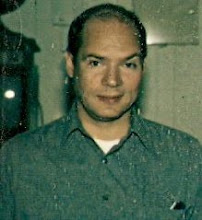<b><span style="font-size: large;">Who Covered The Beatles BEFORE “Sullivan.”
(And Who Didn't.)</span>
By Paul Iorio</b>
<a href="http://pauliorio.files.wordpress.com/2014/01/life.jpg"><img alt="life" class="aligncenter size-medium wp-image-33" height="620" src="http://pauliorio.files.wordpress.com/2014/01/life.jpg?w=300" width="640" /></a>
<i>From Life magazine, January 31, 1964.</i>
<i>From Life magazine, January 31, 1964.</i>
Who saw it coming?
Sure, everyone now agrees -- fifty years after the fact -- that
The Beatles’ first performance on “The Ed Sullivan Show” was
a landmark event in pop culture history.
But who anticipated that reality before the night of
February 9, 1964?
Not everyone. In fact, not many U.S. publications even carried
advance word about the Sullivan appearance.
Pre-Sullivan coverage -– in American print publications -- of
the band was limited to a few major magazines, most notably
Time (which ran an article on November 15, 1963), The New Yorker
and The New York Times Magazine, which covered the Beatles
the following month. Life magazine, too, had a big feature
on them, in January ’64. (There was also coverage in trade
publications and on the evening news programs of NBC and
CBS, but this piece is about coverage in consumer
publications.)
It's important to remember that, by the time of the TV
appearances, The Beatles had already made the trip
from the underground to the overground at warp speed
in the U.K. No less than the Queen of England was a fan
for whom they performed in November of ‘63.
So it wouldn't have been much of a stretch for the American
media to embrace them -- despite the flop of their first songs
in the U.S., singles that would later be hits when Capitol
Records released them months later.
But few in the States covered the band in that fall
season of '63 – even though it wasn't exactly outré
or avant garde for anyone to have taken notice of what
the British royal family had already championed.
Yet there were major hold-outs who were shocked by the
haircuts, which seemed to eclipse all else in published
reports.
“Haystack hairdos,” wrote The San Jose Mercury News.
“Dish mop haircuts,” said The New Yorker. “Mushroom
haircuts,” said Time. “Great pudding bowls of hair,”
said Newsweek.
Newsweek even ran a letter to the editor with a picture
showing the haircuts’ resemblance to comedian Ish Kabibble.
<a href="http://pauliorio.files.wordpress.com/2014/01/kabibble.jpg"><img alt="kabibble" class="aligncenter size-medium wp-image-31" height="640" src="http://pauliorio.files.wordpress.com/2014/01/kabibble.jpg?w=203" width="433" /></a>
<i>From a letter to the editor published in Newsweek,
March 9, 1964.</i>
<i>From a letter to the editor published in Newsweek,
March 9, 1964.</i>
Life ran a photo spread of Dean Rusk, the Secretary of
State at the time, and his employees -- with Beatles
haircuts drawn on them.
<a href="http://pauliorio.files.wordpress.com/2014/01/deanrusk.jpg"><img alt="deanrusk" class="aligncenter size-medium wp-image-32" height="599" src="http://pauliorio.files.wordpress.com/2014/01/deanrusk.jpg?w=300" width="640" /></a>
<i>From Life magazine, 1964.</i>
<i>From Life magazine, 1964.</i>
Of course, just because there was early coverage
doesn’t mean it was prescient, knowing or favorable.
Many missed the point completely and trashed the music.
“Musically, they are a near-disaster, guitars and drums
slamming out a merciless beat that does away with
secondary rhythms, harmony, and melody. Their lyrics
(punctuated with nutty shouts of ‘yeah, yeah, yeah’)
are a catastrophe,” wrote Newsweek in February 1964.
Time agreed. “Their songs consist mainly of ‘Yeh’ to
the accompaniment of three guitars and a thunderous drum.”
Then there was this cutting letter to the editor to Newsweek.
<a href="http://pauliorio.files.wordpress.com/2014/01/letter.jpg"><img alt="letter" class="aligncenter size-medium wp-image-28" height="381" src="http://pauliorio.files.wordpress.com/2014/01/letter.jpg?w=300" width="640" /></a>
<i>From Newsweek, March 9, 1964.</i>
And there was a cartoon in The New York Times Magazine,
published on December 1, 1963, in which a teenager is
saying to her father: "But naturally they make you want
to scream, daddy-o; that's the whole idea of the Beatles'
sound."
Pre-Sullivan coverage in America sort of portrayed
the Beatles as a comedy act, as if they were four
guys with Three Stooges haircuts cutting up onstage.
“The audience is pretty funny, too,” said Time
in its first story on the band. “Goofy looking,” said
Life. They look “spectacularly demented,” wrote The
New York Times.
<a href="http://pauliorio.files.wordpress.com/2014/01/life99.jpg"><img src="http://pauliorio.files.wordpress.com/2014/01/life99.jpg?w=300" alt="life99" width="300" height="215" class="aligncenter size-medium wp-image-24" /></a>
<i>Ringo, and the other band members, posed sort of Three-Stooges-ish
for Life's January 31, 1964, issue.</i>
And almost all publications said it was a transitory fad.
Like “gold fish gobbling,” said Life. “They are a craze,”
said The New York Times. “A craze,” said The New Yorker.
In their TV listings, many publications did not even note
the Sullivan appearance as one of the notable programs
of that particular Sunday night.
Time magazine seemed to list every program but Sullivan’s.
<a href="http://pauliorio.files.wordpress.com/2014/01/timemag.jpg"><img alt="timemag" class="aligncenter size-medium wp-image-36" height="640" src="http://pauliorio.files.wordpress.com/2014/01/timemag.jpg?w=188" width="401" /></a>
<i>Time magazine omits the Sullivan show in its list of notable
programs of Feb. 9, 1964.</i>
<i>Time magazine omits the Sullivan show in its list of notable
programs of Feb. 9, 1964.</i>
The Washington Post, Life magazine, The New York Times,
The San Francisco Chronicle, The San Jose Mercury News
and others did note the Sullivan show in advance,
outside of their listings of all scheduled programs.
(The Mercury News even ran a now-iconic AP wire photo
of Sullivan rehearsing with the band.)
<a href="http://pauliorio.files.wordpress.com/2014/01/stlouispost1.jpg"><img alt="stlouispost1" class="alignnone size-medium wp-image-13" height="311" src="http://pauliorio.files.wordpress.com/2014/01/stlouispost1.jpg?w=300" width="640" /></a>
<i>The St. Louis Post Dispatch didn’t note the Fab Four's upcoming
appearance, but in its listing of all programs, the paper did
rename the band “The Beatles of London.”</i> <i>(From The St. Louis
Post Dispatch, Feb. 9, 1964.)
</i>
And so many seemed so sure The Beatles wouldn’t last.
“The odds are that they will fade away, as most adults
confidently predict,” said Newsweek (while allowing
that the opposite might also turn out to be true).
Fifty years later, the band’s music seems poised to last,
perhaps, for centuries.

No comments:
Post a Comment